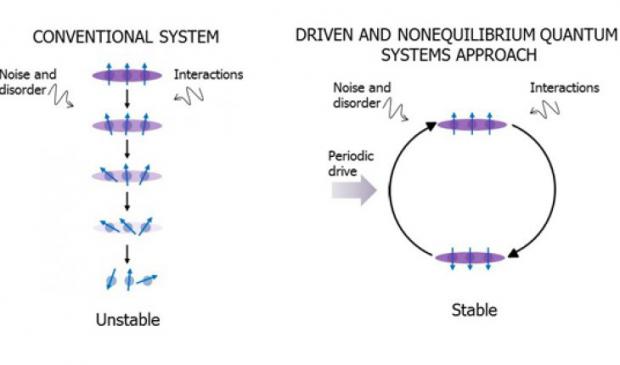
Breaking News
 US Lawmakers Shmooze with Zelensky at Munich Security Conference...
US Lawmakers Shmooze with Zelensky at Munich Security Conference...
 Scientists have plan to save the world by chopping down boreal forest...
Scientists have plan to save the world by chopping down boreal forest...
 New Coalition Aims To Ban Vaccine Mandates Across US
New Coalition Aims To Ban Vaccine Mandates Across US
Top Tech News
 New Spray-on Powder Instantly Seals Life-Threatening Wounds in Battle or During Disasters
New Spray-on Powder Instantly Seals Life-Threatening Wounds in Battle or During Disasters
 AI-enhanced stethoscope excels at listening to our hearts
AI-enhanced stethoscope excels at listening to our hearts
 Flame-treated sunscreen keeps the zinc but cuts the smeary white look
Flame-treated sunscreen keeps the zinc but cuts the smeary white look
 Display hub adds three more screens powered through single USB port
Display hub adds three more screens powered through single USB port
 We Finally Know How Fast The Tesla Semi Will Charge: Very, Very Fast
We Finally Know How Fast The Tesla Semi Will Charge: Very, Very Fast
 Drone-launching underwater drone hitches a ride on ship and sub hulls
Drone-launching underwater drone hitches a ride on ship and sub hulls
 Humanoid Robots Get "Brains" As Dual-Use Fears Mount
Humanoid Robots Get "Brains" As Dual-Use Fears Mount
 SpaceX Authorized to Increase High Speed Internet Download Speeds 5X Through 2026
SpaceX Authorized to Increase High Speed Internet Download Speeds 5X Through 2026
 Space AI is the Key to the Technological Singularity
Space AI is the Key to the Technological Singularity
 Velocitor X-1 eVTOL could be beating the traffic in just a year
Velocitor X-1 eVTOL could be beating the traffic in just a year
DARPA aims for 100-fold performance improvement for defense-related sensors and devices

If you wait long enough, interactions with the environment will make the state behave like a conventional classical system. In many cases, this time is significantly short. DARPA, with an eye on practical quantum devices and sensors in compact sizes, has set its sight on demonstrating protocols that can dramatically extend the longevity of the coherence of quantum systems.
DARPA's Defense Sciences Office (DSO) today announced a new fundamental research program, Driven and Nonequilibrium Quantum Systems (DRINQS) to investigate a recent paradigm shift in quantum research, which maintains that periodically driving a system out of equilibrium may stabilize its coherence.
"A simple illustration of the concept of driving something out of equilibrium to increase its stability is the well-known trick of making an inverted broom stand up on the palm of your hand or on one of your fingertips," said Ale Lukaszew, DARPA program manager. "If you hold your hand still, the broom is unstable and will fall over quickly. But if you drive the broom out of equilibrium by moving your hand around periodically, you can make the broom very stable, so it remains upright indefinitely."

 Going the Way of the Denarius
Going the Way of the Denarius

